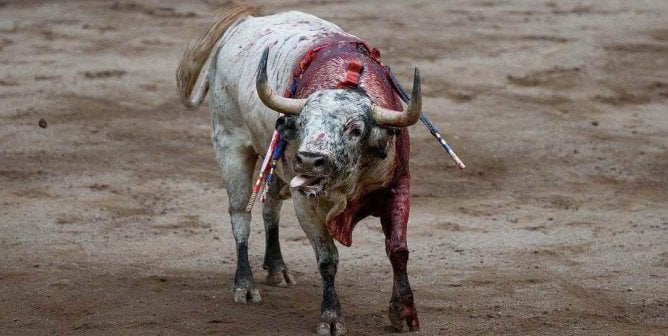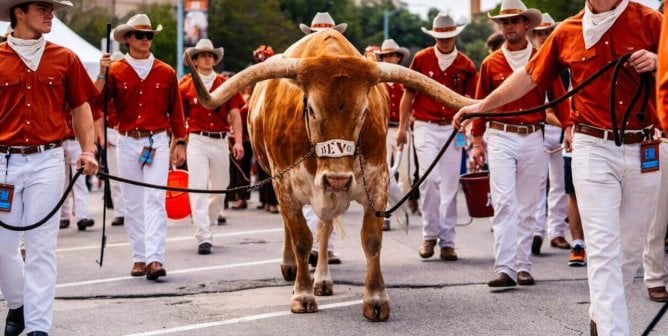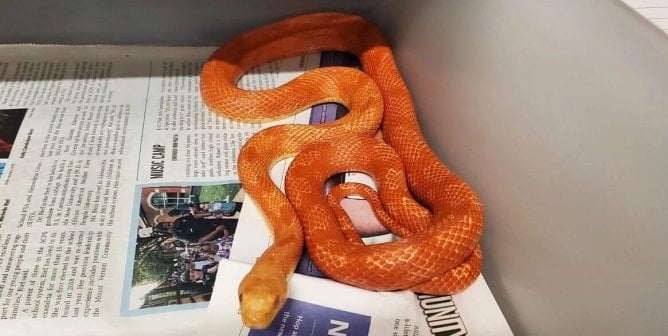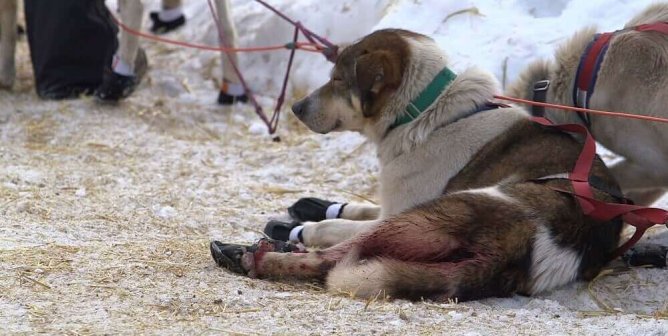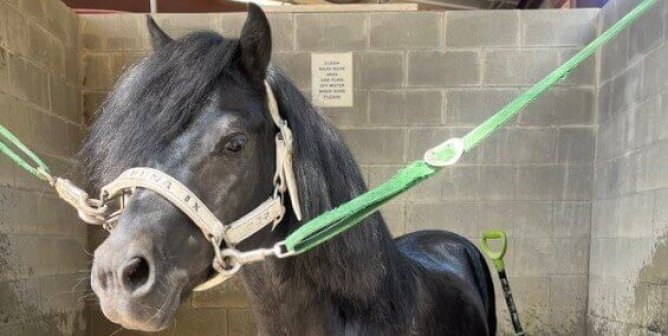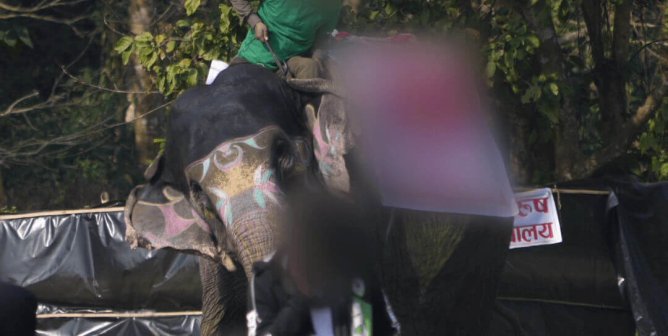Charreada: Bone-Breaking Cruelty
Every year throughout Mexico and the American Southwest, horses and cows are injured or killed during charreadas or charrerias (Mexican rodeos). The charreada has followed much the same historical track as the American rodeo: Once a contest among charros (horse riders) to show off riding and roping skills on horses, bulls, and calves, the charreada has degenerated into what is essentially a series of bullying circus acts showcasing “skills” that no rancher would ever use.
Torturous Spectacle
The typical charreada features a number of events. The “pass of death” involves leaping from the back of one horse onto the back of a wild horse and riding until the animal becomes exhausted from trying to buck the person off.1 “Roman riding,” calls for a charro to straddle two horses while driving two more horses in front of them.2 During the terna en el ruedo, riders must rope a bull as quickly as possible; one rider ropes the animal by the neck and two others by the hind legs, “then both charros pull the bull in opposite directions until the bull is stretched out on the ground.”3
A few municipalities and the state of Nebraska banned one charreada event event called coleadero or “steer-tailing.”4 A charro on horseback pursues a steer, grabs the animal’s tail, wraps it around his boot and stirrup, then veers off, slamming the steer to the ground.5 When the sheriff’s office in Jefferson County, Colorado, was alerted to possible cruelty-to-animals offenses following steer-tailing at a charreada, officials investigated and found cattle that suffered from flesh being ripped away from their tails, while others had broken bones and had to be euthanized. The charreada promoter was issued a summons for failing to provide veterinary care.6
“Horse-tripping” is the focus of two events: the manganas and the piales, both in which horses are roped by their legs and yanked to the ground.7 Veterinarian Steve White, who witnessed a Nebraska charreada, told the Omaha City Council that horse-tripping can cause rope burns, dislocations, torn muscles, and broken legs. “Tradition should never take precedence over the welfare of animals,” he said.8 Horse-tripping has been banned in nearly a dozen states, including Arizona, California, New Mexico and Texas.9
What You Can Do
Charreadas and rodeos are argued to be culturally significant, but one survey found that only 1% of Mexicans who attended a traditional festivity, attended a charreada.10 Forcing animals to perform dangerous stunts for human amusement is a form of speciesism, the belief that humans are superior to other animals. Your voice can help bring about positive change for the horses and cattle forced to perform at these outdated, barbaric events.
If you live in a city where charreadas and rodeos take place, please ask your legislative representatives to follow the lead of cities like Pittsburgh, Pennsylvania; Ft. Wayne, Indiana; St. Petersburg, Florida; and several cities in California, which have banned painful rodeo tools like sharpened spurs, electronic prods, and wire tie-downs.11 If you plan to visit the American Southwest or Mexico, tell your travel agent that you oppose cruelty to animals and refuse to attend a charreada.
References
1International Arts and Artists, “Arte en la Charreria,” National Cowboy Museum, accessed 26 Sept. 2021.
2Angelica Casas, “A Family Tradition,” San Antonio Express-News, 12 Sept. 2012.
3Julia Hambric et al., Charreada: Mexican Rodeo in Texas. Texas: University of North Texas Press: 2002.
4Patricia Leigh Brown, “Rough Events at Mexican Rodeos in U.S. Criticized,” The New York Times, 12 Jun 2008.
5Ibid.
6Yesenia Robles, “Mexican Rodeo Cancels “Steer-tailing” Event at Jeffco Fairgrounds,” The Denver Post, 6 Aug. 2010.
7Hambric.
8Karen Sloan and Andrew J. Nelson, “Omaha May Ban Steer Tailing, Horse Tripping” Associated Press, 12 Dec. 2007.
9Malinda Larkin, “Horse Tripping Can Fly Under the Radar,” JAVMA News, 28 Sept. 2016.
10“Encuesta Nacional de Hábitos, Prácticas y Consumo Culturales,” Conaculta, Agosto,2010.
11Elizabeth Chou, “Cattle Prods, Other Rodeo Implements Could Be Banned Under Motion in LA City Council,” Los Angeles Daily News, 22 Feb. 2021.

